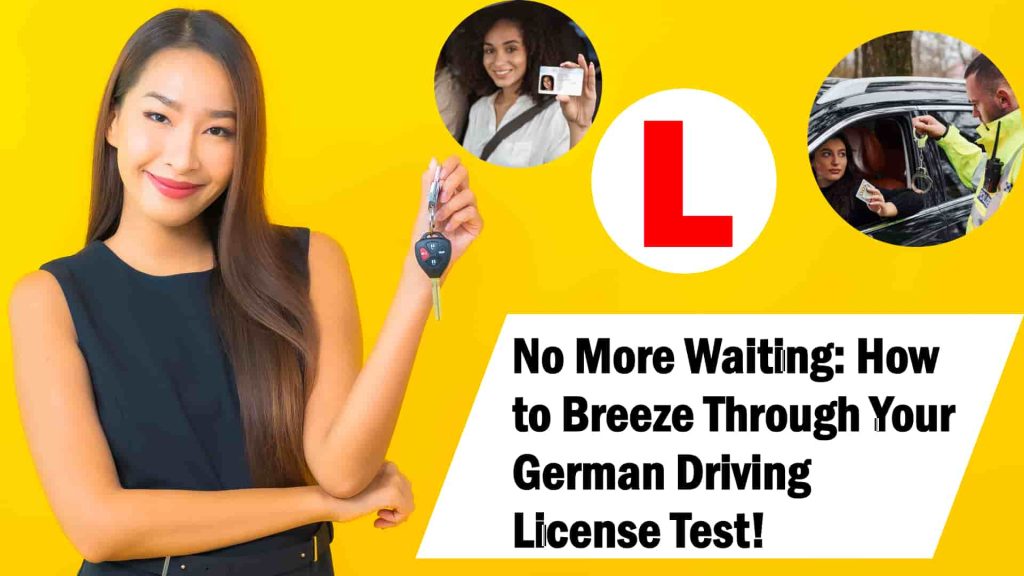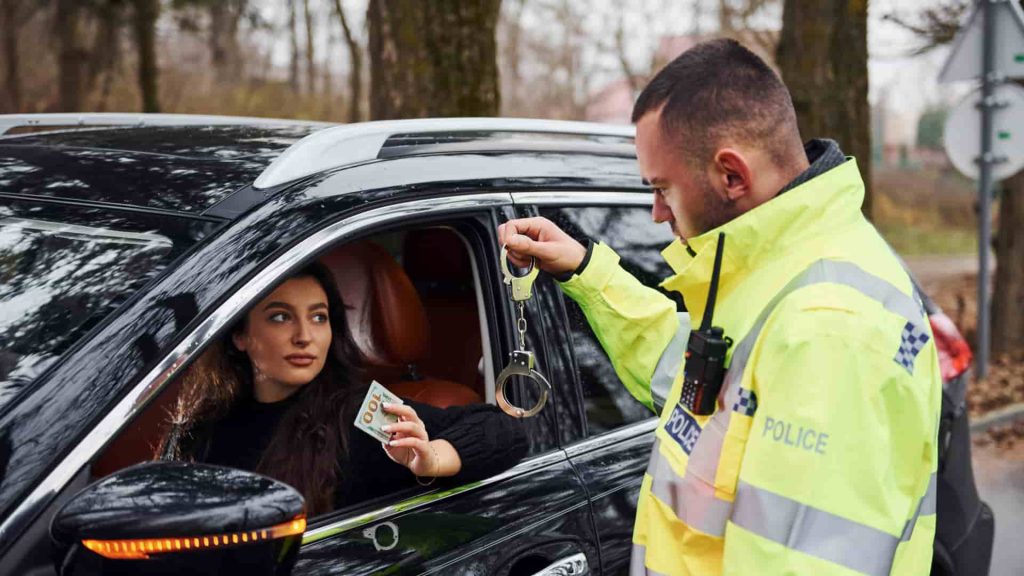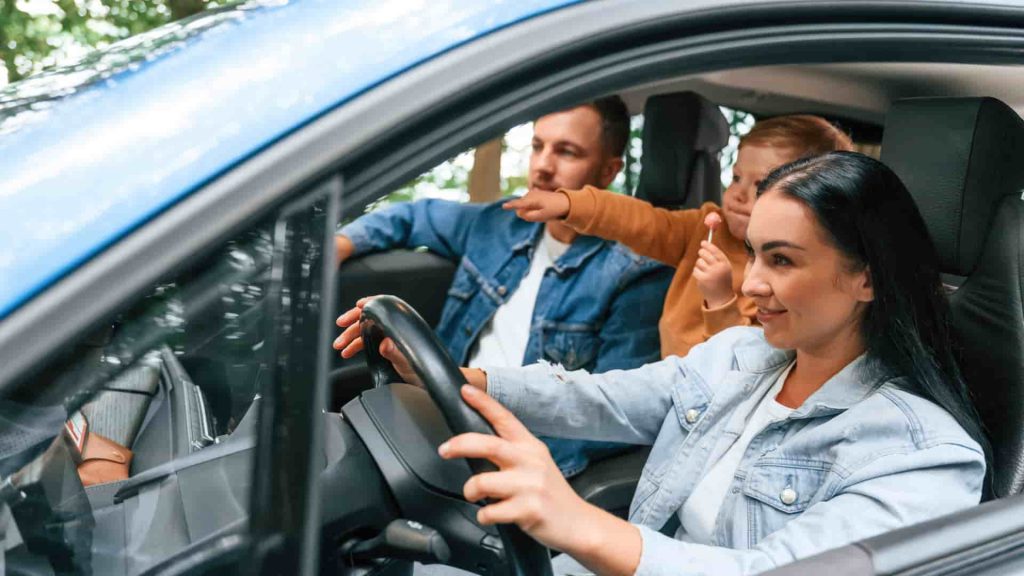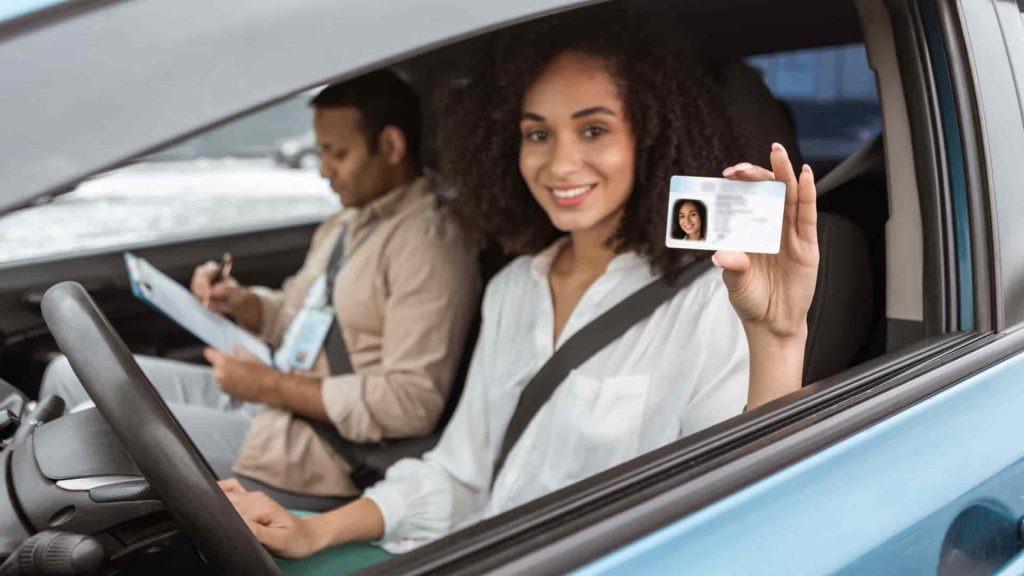
In 2022 alone, most roads and driving schools in Germany buzzed with an unprecedented level of activity. A staggering 3.6 million residents and expats lined up to get their driving licenses in Germany, thus, making it one of the busiest years for the market.
Surely, the thrill of racing through Germany’s long stretches of autobahn, along with the lovely landscapes it offers has many hooked!
Quite a stand-out point, of those who took the test, the theoretical aspect was met with more favorable outcomes, with an approximate of 63% success rate.
In contrast, the practical exam, filled with real-life thrills, challenges, and unpredictable moments, had a slightly lower pass rate of 61% for category B vehicles, or cars.
We’re sure that if you’re here reading this blog on how to get a driving license in Germany, we’ve already piqued your interest. While the process may seem daunting, we promise that in this case, appearances are truly deceiving.
We will break down the essential aspects you need to keep in mind, such as minimum eligibility, theory, and practical classes, their respective exams, and the documentation you need to provide. Essentially, we’ll guide you through this journey. So, without further ado, let’s begin, shall we?
Make sure to read: A Quick and Simple 101 Guide to Vegan Dining in Berlin
Eligibility to Acquire a Driving License in Germany
When it comes to obtaining a driving license in Germany, as in other countries, several minimum eligibility criteria must be met. These criteria include age, residency, eyesight, completion of a mandatory first-aid course, and enrollment in a licensed driving school.
Although the minimum age for obtaining a provisional driving license in Germany is 16 (please note, limited motorcycles up to 125 cm³ with a power output of up to 11 kW), the specific age limit varies depending on the category of vehicle you wish to drive.

| Age | Vehicle Category | Description |
| 16 years old | AM | Limited motorcycle (up to 125 cm³) with a power output of up to 11 kW. |
| 17 years old | B (with Begleitperson) | Car with a driving permit accompanied by a legal guardian (Begleitetes Fahren). |
| 18 years old | B | Unrestricted car. |
| 21 years old | C and D | Buses, trucks, and other heavy vehicles. |
You also need to be a legal resident of Germany to apply for a driving license. Here, we need to take a small detour to discuss some of the guidelines for driving with an International Driving Permit (IDP), for non-residents who want to drive in Germany.
You can drive in Germany with a valid national driver’s license and an IDP for up to six months in the country, after which you must obtain a German driver’s license. Additionally, your IDP must be valid and issued by an authorized organization in your home country. In most cases, you will also have to submit a translation of your IDP in German.
Specific car companies have their own policies regarding IDPs, so, make sure to check with them for any specific requirements.

Coming back to the other prerequisites for obtaining a valid driving license in Germany, you also need to pass an eye test, certified by an optometrist or an ophthalmologist. There is a mandatory nine-unit first-aid course you need to take and enroll yourself in a licensed driving school for complete theoretical and practical training.
Your recommended post for the week: The Essential Role of ‘Ordnungsamt’ in Local Neighborhoods
Documentation Required to Apply for a Driving License in Germany
To apply for a German driver’s license, you’ll need to gather and submit a few documents. Most of these are quite obvious and are part of a standard procedure that is followed worldwide.
| Document | Description | Where to Obtain |
| Valid passport or ID card (Personalausweis) | Proof of identity and residency | Existing government document |
| Registration certificate (Anmeldung) | Proof of residency address | Local citizen registration office |
| Eyesight test certificate (Sehtest) | Recent eye test results | Optician or ophthalmologist |
| First-aid course certificate | Completion proof | Recognized first-aid course provider |
| Biometric passport photo | Recent photo meeting specific requirements | Photo studio familiar with driver’s license needs |
| Driving school contract (Ausbildungsvertrag) | Provided upon enrollment | Driving school |
| Fee payment receipt | Proof of application fee payment | Varies (check local authority) |

Your application process begins with submitting all of the required documents along with the formal application form at your local citizen’s office or the Bürgeramt. Make sure to call and make an appointment beforehand.
Also read: 13 Stunning Facts on the German Education System
Taking the Theory Classes and the Exam for Getting a Driving License in Germany
Before you head into your practical driving classes with certified instructors and the driving exam itself, you need to take a mandatory theory class and test.
These classes often cover a broad range of topics related to safe driving practices, traffic rules, signals and regulations, road signs, basic first-aid, and vehicle technology. The minimum requirement is 14 theory units, all of which are 90 minutes each, making it a total of 21 hours.
They are often self-paced and can be done by the students themselves. However, most driving schools offer intensive courses that condense the timeframe. Classes are primarily conducted in German, but many schools also offer classes in English upon request, but the availability of seats may be limited.
Following your theory classes, all driving license applicants are also required to complete a computer-based exam consisting of 30 multiple-choice questions. These questions may also include images, case studies, and short videos.

In order to pass the exam successfully, each candidate must score 70% or higher, that is, answer at least 21 questions correctly.
The easiest way to ensure that you pass your exam on the first go is to attend all the classes and participate in them actively. Additionally, the study material is also available on all official driving school and license-related websites.
Most of the questions can be answered with some basic understanding of traffic regulations, road signs, and ethical practices (all of which are already covered in school).
Since you are taking the exam in a non-native language (German, here), make sure to have a strong grasp on relevant vocabulary and terminology.
What Do the Practical Classes and Examination Entail?
Once you join a licensed driving school or a Fahrschule, you will be assigned a qualified, government authorised instructor. The minimum number of practical lessons required varies depending on your individual performance and the instructor’s assessment. However, there are a few standard set of guidelines:
| Category | Description | Duration |
| Basic training (Sonderfahrten) | 12 special lessons focusing on maneuvers and techniques | 12 x 45 minutes |
| Main driving lessons | 3 lessons covering country roads, highways, and urban areas | 3 x 45 minutes |
| Night driving | 1 lesson focused on nighttime driving | 1 x 45 minutes |
| Total | 16 x 45 minutes |
Don’t let the training time scare you. Lessons are tailored to individual needs and progress, covering basic car operation, safe driving practices, various road situations, and specific maneuvers like parking and reversing. You will get feedback and personalized guidance throughout the process.
We think you’ll love this: Everything You Need to Know About ‘Ruhezeit’ or the German Quiet Hours
The Ever Dreaded, Anxiety-Inducing Practical Exam
Don’t let the title scare you! The practical exam is pretty simple and straightforward. It usually runs for an approximate time of 45 minutes and essentially evaluates your ability to handle the vehicle safely and confidently in real-world traffic situations.
Here are a few important things you will be assessed on:
- Car control and maneuvering skills.
- Observation and awareness of your surroundings and traffic signs.
- Adherence to traffic regulations and safe driving practices.
- Reflex and decision-making skills.
Once you have passed both your practical and theoretical exams, the examiner grants you your driver’s license on probation for two years. During this period, a few regulations still apply to you, such as a lower blood alcohol limit while driving. Following which, you will be awarded your full driver’s license.

Don’t forget to read: Top 8 German Television Shows and German Cinema – Your New To-Watch List
A General Breakdown of the Costs for Obtaining a Driving License in Germany
| Cost Category | Estimated Cost Range (EUR) |
| Theory classes | €400 – €800 |
| Practical lessons (minimum) | €800 – €1500 |
| Exams (theory & practical) | €100 – €200 |
| Additional fees (e.g., application fee, first-aid course) | €100 – €200 |
| Total | €1400 – €2600 |
What Else Should You Know When Getting a Driving License (and Driving) in Germany
These are some of our last-minute pointers before you zoom off onto the roads of Germany with your new toy and the legal license to drive it. Traffic flows on the right side, so stay in the right lane unless overtaking slower vehicles on the left. Seat belts are mandatory for everyone in the car, and child safety seats are required based on your child’s age and size.
Germany takes winter weather seriously, so make sure you have winter tires installed by law during winter conditions. Always carry your driver’s license, vehicle registration document, and some form of identification while driving. If you’re unfortunate enough to be involved in an accident, remember the emergency number for the police is 110. Finally, be aware that Germany has a strict blood alcohol content limit for drivers, so it’s best to avoid driving under the influence altogether.
So there you have it!
A comprehensive guide that details all the steps you need to keep in mind when getting a driving license in Germany. Keep calm, follow the instructions, maintain your zen, and truly enjoy the long, ever-expanding, beautiful roads of Germany.




